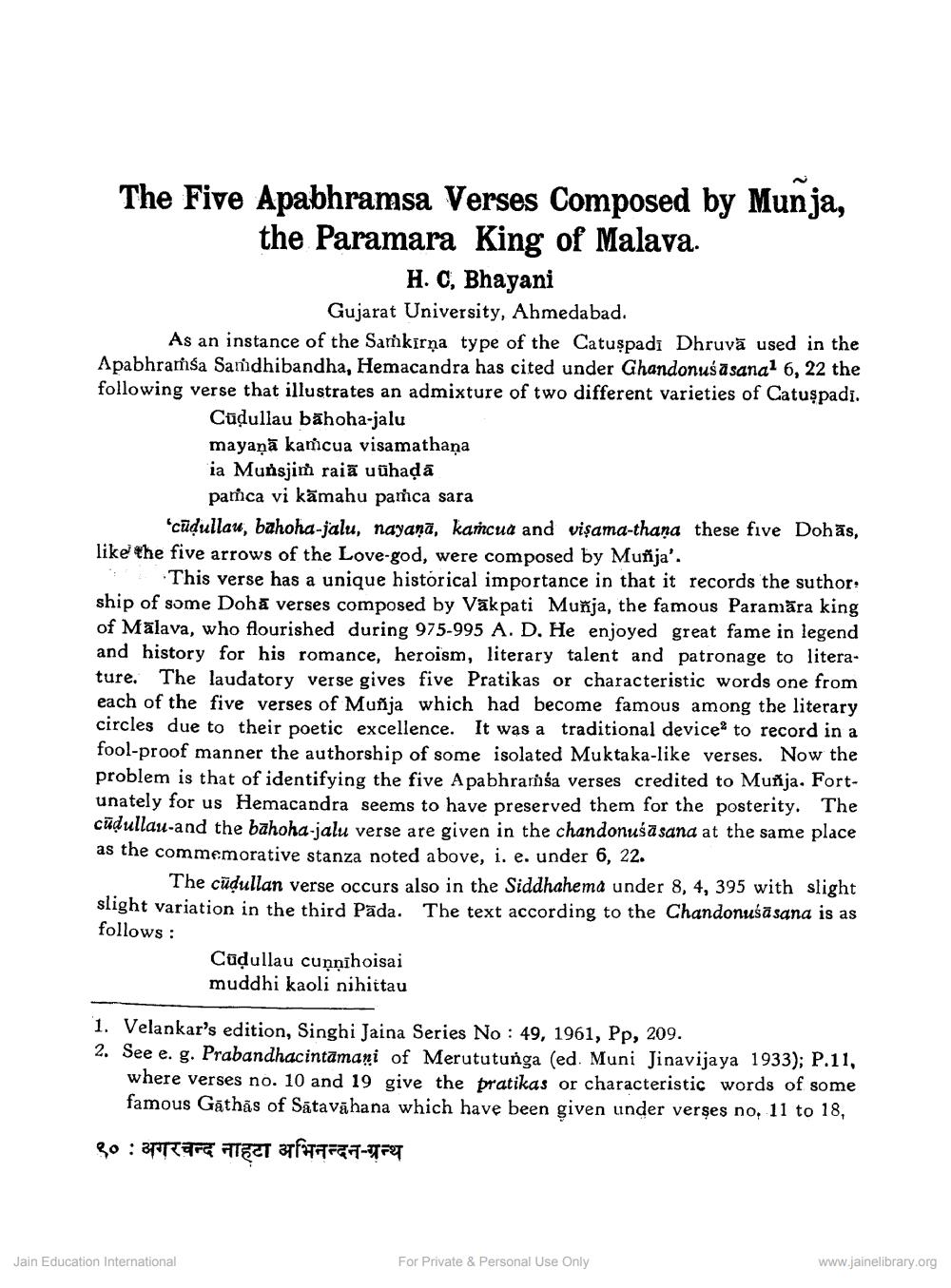________________
The Five Apabhramsa Verses Composed by Munja, the Paramara King of Malava.
H. C, Bhayani
Gujarat University, Ahmedabad. As an instance of the Samkirna type of the Catuspadi Dhruvā used in the Apabhramsa Sandhibandha, Hemacandra has cited under Ghandonuśāsanal 6, 22 the following verse that illustrates an admixture of two different varieties of Catuspadi.
Cūdullau bāhoha-jalu mayaņā kamcua visamathaņa ia Munsjim raiā uühadā
pamca vi kāmahu parca sara
'cüdullau, bahoha-jalu, nayanā, kamcua and vişama-thana these five Dohās, like the five arrows of the Love-god, were composed by Muñja'.
This verse has a unique historical importance in that it records the suthor: ship of some Doha verses composed by Vāk pati Muñja, the famous Paramāra king of Mālava, who flourished during 975-995 A. D. He enjoyed great fame in legend and history for his romance, heroism, literary talent and patronage to literature. The laudatory verse gives five Pratikas or characteristic words one from each of the five verses of Muñja which had become famous among the literary circles due to their poetic excellence. It was a traditional device to record in a fool-proof manner the authorship of some isolated Muktaka-like verses. Now the problem is that of identifying the five Apabhrarnsa verses credited to Muñja. Fortunately for us Hemacandra seems to have preserved them for the posterity. The cüdullau-and the bahoha-jalu verse are given in the chandonuśāsana at the same place as the commemorative stanza noted above, i. e. under 6, 22.
The cüdullan verse occurs also in the Siddhahema under 8, 4, 395 with slight slight variation in the third Päda. The text according to the Chandonuśāsana is as follows:
Cuộullau cuņņihoisai muddhi kaoli nihittau
1. Velankar's edition, Singhi Jaina Series No : 49, 1961, Pp, 209. 2. See e. g. Prabandhacintāmani of Merututunga (ed. Muni Jinavijaya 1933); P.11,
where verses no. 10 and 19 give the pratikas or characteristic words of some famous Gathās of Sātavāhana which have been given under verses no. 11 to 18,
९० : अगरचन्द नाहटा अभिनन्दन-ग्रन्थ
Jain Education International
For Private & Personal Use Only
www.jainelibrary.org




